
Journey Through the Peaks: The Karakoram Highway Experience
The Karakoram Highway, often celebrated as the Eighth Wonder of the World, is a marvel of engineering and natural beauty. Stretching over 1,300 kilometers, it connects Pakistan with China, winding through the formidable peaks of the Karakoram Range. This highway offers a unique blend of adventure, history, and breathtaking scenery, making it a must-visit for any traveler seeking an extraordinary experience. As you traverse the Karakoram Highway, you'll be greeted by awe-inspiring landscapes, from the lush green valleys of Hunza to the stark, rugged mountains of Gilgit-Baltistan. The road itself is a testament to human perseverance, cutting through some of the world’s highest peaks and deepest gorges. Along the way, you'll encounter a rich tapestry of cultures, with local communities that are as diverse as the landscapes they inhabit. Key stops along the highway include the enchanting Hunza Valley, known for its apricot orchards and the stunning Baltit Fort. Further along, the Khunjerab Pass, the highest paved international border crossing in the world, offers panoramic views that are simply unparalleled. Whether you are interested in trekking, photography, or simply soaking in the serene beauty of the mountains, the Karakoram Highway promises an unforgettable journey.
Local tips in Karakoram Highway
- Best time to visit is from May to October when the weather is milder and the roads are clearer.
- Carry warm clothing, even in the summer, as temperatures can drop significantly at higher altitudes.
- Make sure to have your documents ready for checkpoints, especially near the Khunjerab Pass.
- Try local delicacies like Hunza apricots and traditional dishes at roadside eateries.
- Consider hiring a local guide to enhance your experience and navigate the area's unique challenges.
Journey Through the Peaks: The Karakoram Highway Experience
The Karakoram Highway, often celebrated as the Eighth Wonder of the World, is a marvel of engineering and natural beauty. Stretching over 1,300 kilometers, it connects Pakistan with China, winding through the formidable peaks of the Karakoram Range. This highway offers a unique blend of adventure, history, and breathtaking scenery, making it a must-visit for any traveler seeking an extraordinary experience. As you traverse the Karakoram Highway, you'll be greeted by awe-inspiring landscapes, from the lush green valleys of Hunza to the stark, rugged mountains of Gilgit-Baltistan. The road itself is a testament to human perseverance, cutting through some of the world’s highest peaks and deepest gorges. Along the way, you'll encounter a rich tapestry of cultures, with local communities that are as diverse as the landscapes they inhabit. Key stops along the highway include the enchanting Hunza Valley, known for its apricot orchards and the stunning Baltit Fort. Further along, the Khunjerab Pass, the highest paved international border crossing in the world, offers panoramic views that are simply unparalleled. Whether you are interested in trekking, photography, or simply soaking in the serene beauty of the mountains, the Karakoram Highway promises an unforgettable journey.
When is the best time to go to Karakoram Highway?
Unmissable attractions to see
Babusar Top
Discover the breathtaking beauty of Babusar Top, a majestic mountain pass in Pakistan's northern region, perfect for nature lovers and adventure seekers.
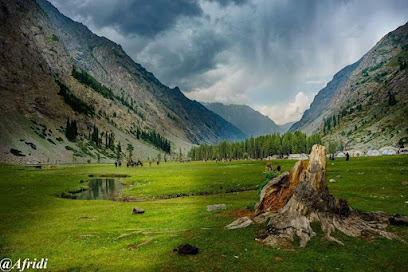
Saif ul Malook National Park
Explore the stunning landscapes and rich biodiversity of Saif ul Malook National Park, a breathtaking natural wonder in Khyber Pakhtunkhwa, Pakistan.
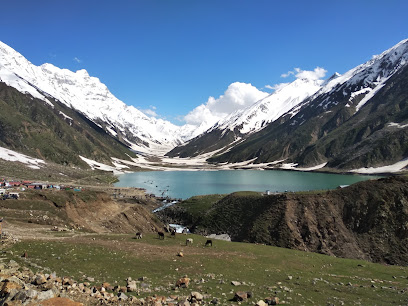
Lulusar-Dudipatsar National Park
Discover the stunning landscapes and rich biodiversity of Lulusar-Dudipatsar National Park, a haven for nature lovers and adventure seekers in Pakistan.
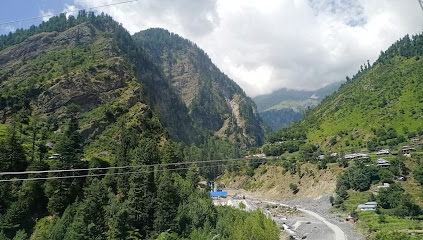
Deosai National Park
Explore Deosai National Park: A breathtaking blend of towering mountains, vibrant meadows, and rich biodiversity awaits in Pakistan's natural wonderland.
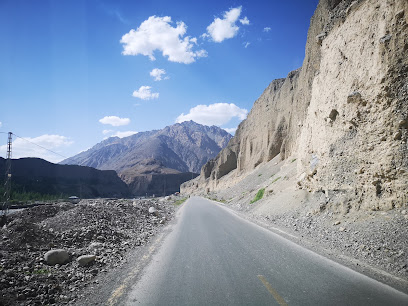
Lulusar Lake Viewpoint
Discover the enchanting beauty of Lulusar Lake Viewpoint, a stunning natural wonder in Khyber Pakhtunkhwa, Pakistan, perfect for nature lovers and adventurers.
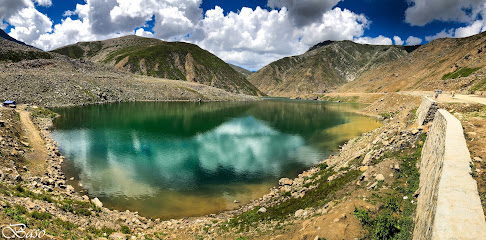
Kharphocho Fort
Explore the historic Kharphocho Fort in Skardu, a stunning fortress offering breathtaking views and a glimpse into the rich heritage of Gilgit-Baltistan.
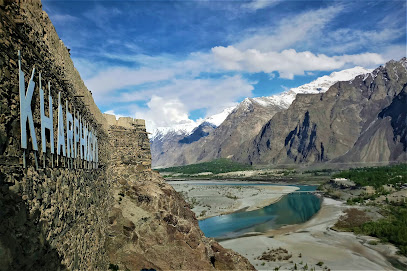
Paya Meadows
Explore the breathtaking Paya Meadows in Khyber Pakhtunkhwa, where stunning landscapes and tranquil beauty create the perfect nature escape.
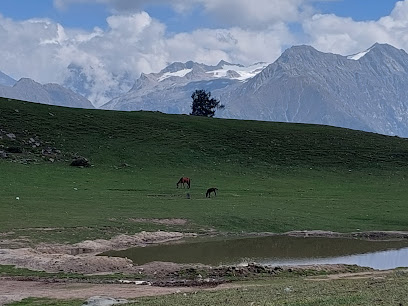
Blue Lake, Nalter
Explore the stunning Blue Lake in Naltar Valley, a breathtaking natural wonder in Gilgit-Baltistan, perfect for nature lovers and adventure seekers.
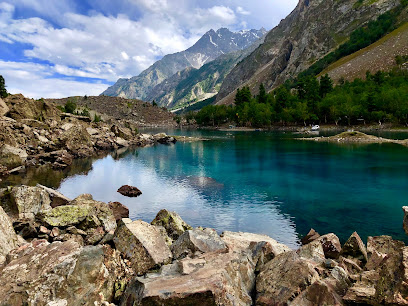
Rama Meadows
Explore Rama Meadows, a serene hiking paradise in Astore Valley, Pakistan, where breathtaking views and natural beauty await every traveler.
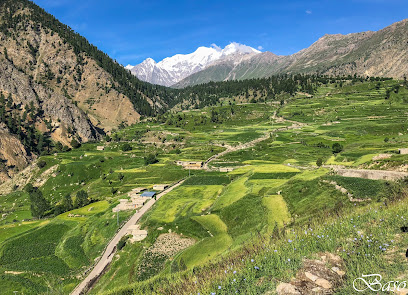
Sharan Forest
Experience the natural beauty of Sharan Forest in Khyber Pakhtunkhwa, where serene trails and vibrant wildlife await your discovery.
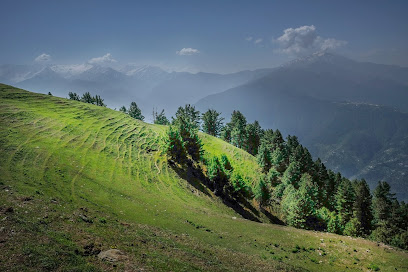
Soq Valley
Explore Soq Valley: A breathtaking natural wonder in Skardu, Pakistan, perfect for adventure, relaxation, and cultural immersion.
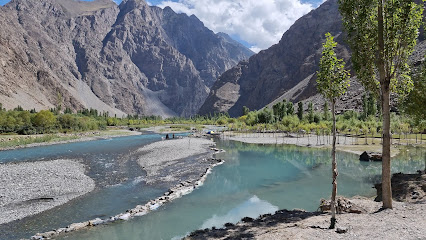
The Three Mountains Junction View Point
Experience the stunning views at The Three Mountains Junction View Point in Gilgit-Baltistan, where nature's beauty captivates every visitor.
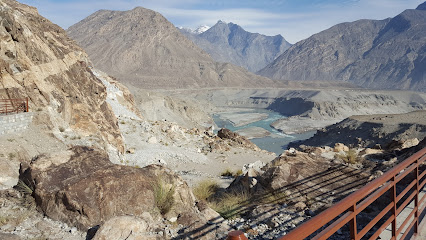
Kunhar Valley View Point, Dana Top
Experience the breathtaking beauty of Kunhar Valley View Point, a serene escape in Khyber Pakhtunkhwa, offering stunning panoramic views and nature's tranquility.
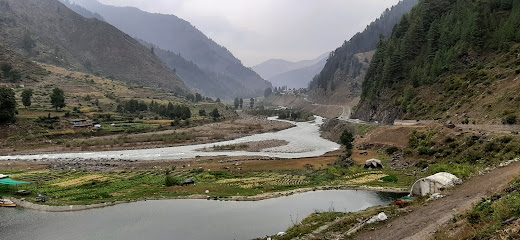
Sacred Rocks of Ganish,Hunza (Haldeikish)
Discover the Sacred Rocks of Ganish in Hunza, a historical landmark showcasing ancient carvings amidst stunning natural scenery.
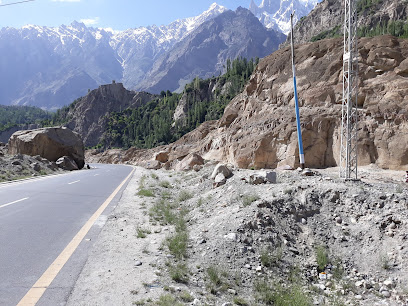
Chilas Fort
Explore Chilas Fort, a captivating historical landmark in Gilgit-Baltistan, where rich heritage meets stunning natural beauty.
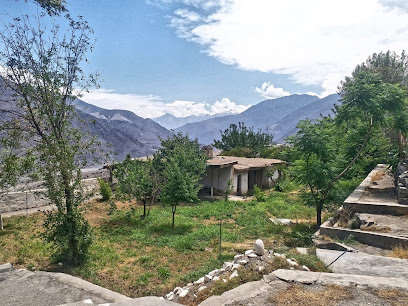
Essential places to dine
The Food Corridor
Experience authentic local cuisine and delightful flavors at The Food Corridor in Gilgit – a culinary gem in the heart of Pakistan's stunning landscapes.
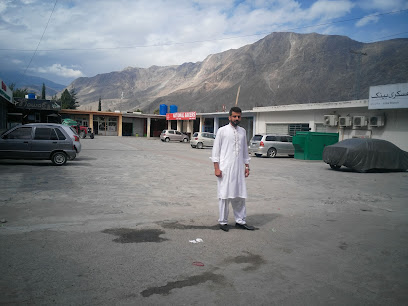
Mezbaan Restaurant
Experience authentic Pakistani cuisine amidst breathtaking views at Mezbaan Restaurant in Gilgit-Baltistan.
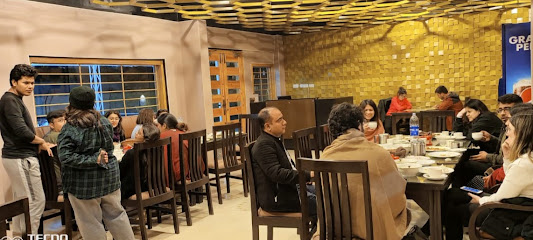
Pakistan Hotel and Fiaz Restaurant
Experience authentic Pakistani flavors at Pakistan Hotel and Fiaz Restaurant in Chilās - where delicious meets affordable amidst stunning landscapes.
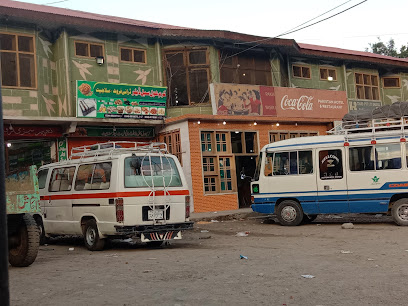
Kashgar Khurak Mahal Shanwari Centre & Guest House
Experience authentic Shanwari cuisine at Kashgar Khurak Mahal Shanwari Centre & Guest House amidst the breathtaking beauty of Gilgit-Baltistan.
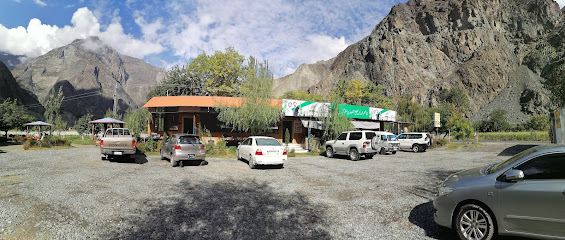
SIPS & BITES
Discover the culinary delights of Hunza at Sips & Bites—where fast food meets traditional flavors in a cozy setting.
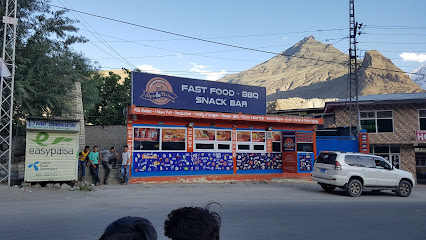
Babusar Gateway Restaurant
Experience authentic Pakistani cuisine amidst the breathtaking landscapes of Gilgit-Baltistan at Babusar Gateway Restaurant.
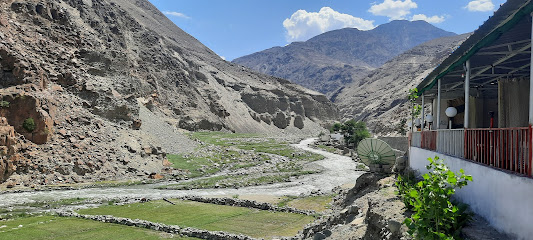
Khunjerav Cafe'
Discover Khunjerav Cafe' in Sost - your gateway to delicious Pakistani and Chinese cuisine amidst breathtaking Gilgit-Baltistan scenery.
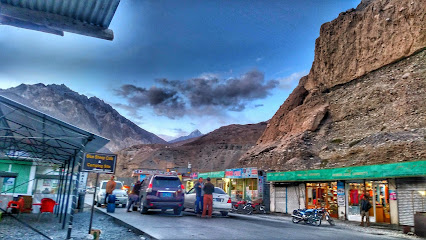
Khyber Village Restaurant
Experience authentic Pakistani cuisine surrounded by the stunning landscapes of Hunza at Khyber Village Restaurant.
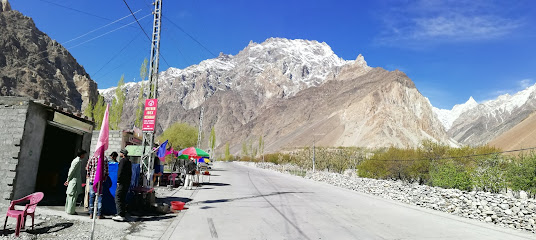
Sivana
Discover the flavors of Gilgit at Sivana - where local cuisine meets stunning river views.
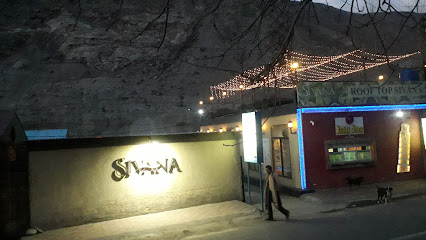
Hunza hotel and restaurant
Experience authentic Pakistani cuisine surrounded by stunning mountain views at Hunza Hotel and Restaurant in Kohistan.
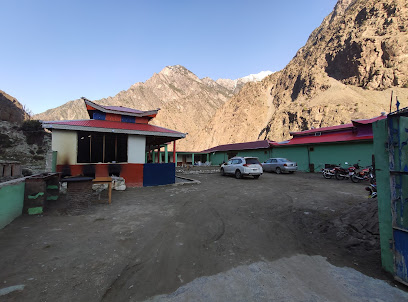
Chinese Xinjiang Resturant
Experience authentic Xinjiang cuisine in Gilgit-Baltistan at Chinese Xinjiang Restaurant - where flavor meets tradition.
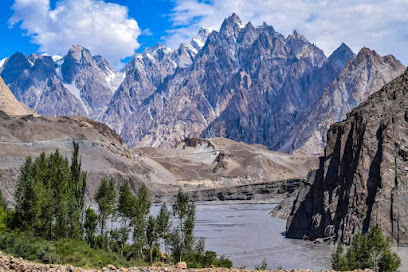
Khunjarab Wild Garden Restaurant & Camping Site Toqroqeen
Experience delightful local cuisine amidst breathtaking landscapes at Khunjarab Wild Garden Restaurant & Camping Site in Gilgit-Baltistan.
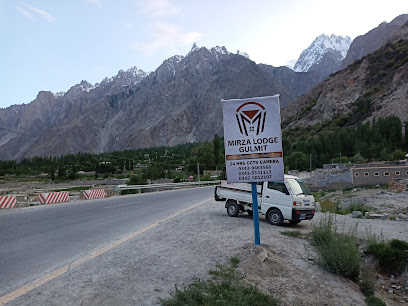
Silk Route Restuarant
Discover the flavors of Gilgit-Baltistan at Silk Route Restaurant—where local cuisine meets stunning mountain vistas.
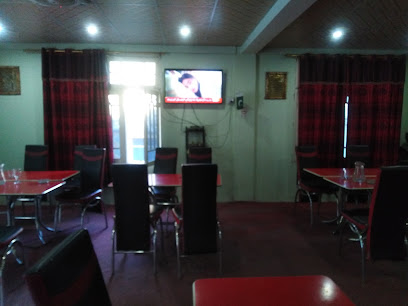
Cafe De Pasale
Discover authentic Pakistani cuisine at Cafe De Pasale in Gojal - where stunning landscapes meet unforgettable flavors.
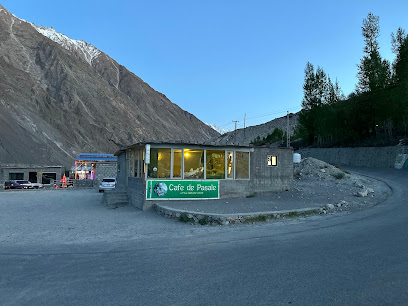
Butt tikka karahi
Experience authentic Pakistani barbecue at Butt Tikka Karahi in Ganish – where flavor meets tradition on the Karakoram Highway.
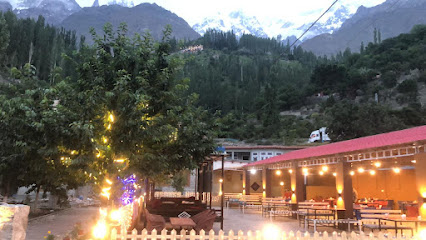
Markets, malls and hidden boutiques
Rakaposhi View Point Hotel & Restaurant
Discover breathtaking mountain views and delicious cuisine at Rakaposhi View Point Hotel & Restaurant, a must-visit destination in Ghulmat Nagar.
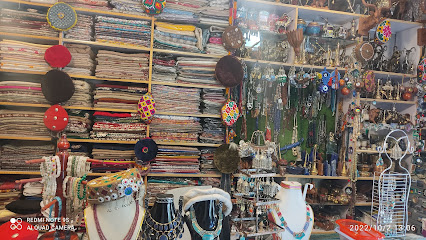
The Three Mountains Junction View Point
Experience the breathtaking convergence of three majestic mountain ranges at The Three Mountains Junction View Point in Gilgit-Baltistan.
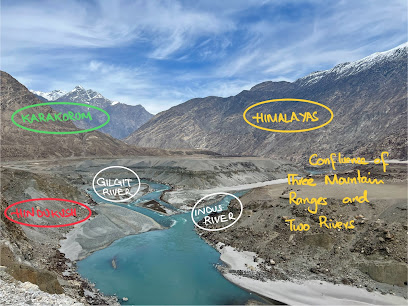
Dj Carpets and foam center
Explore the exquisite craftsmanship at Dj Carpets and Foam Center in Gilgit, a destination for unique carpets and quality foam products.
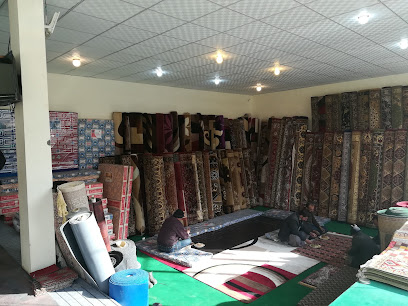
Styllent Enterprises
Explore the finest interior design solutions at Styllent Enterprises in Gilgit, where quality meets creativity for every home.

Utility Store
Explore the Utility Store in Chilās, Gilgit-Baltistan, where shopping meets stunning landscapes and local culture.

Shigri Zehr e Mora Gift Shop
Explore the rich heritage of Gilgit-Baltistan at Shigri Zehr e Mora Gift Shop, where unique antiques and local crafts await your discovery.

Hunza Souvenir Art, Stones for Stolen Hearts
Discover unique handcrafted treasures at Hunza Souvenir Art, where every item embodies the rich culture and beauty of Karimabad.
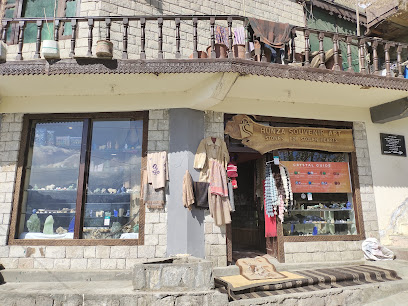
High Mountain Shop Skardu
Explore the beauty of Skardu with High Mountain Shop, your one-stop destination for outdoor gear and expert advice in Gilgit-Baltistan.
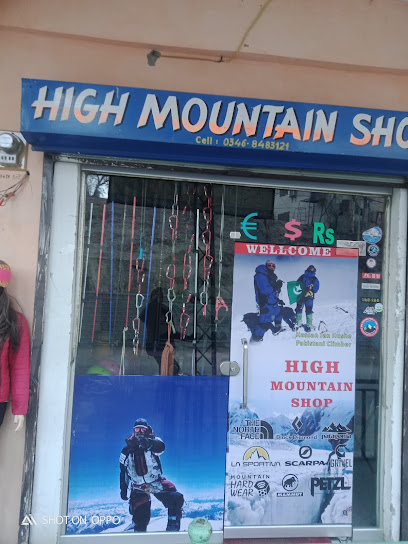
Hunza Wood Art
Explore the exquisite craftsmanship of Hunza Wood Art, where every handcrafted piece tells a story of rich culture and natural beauty.
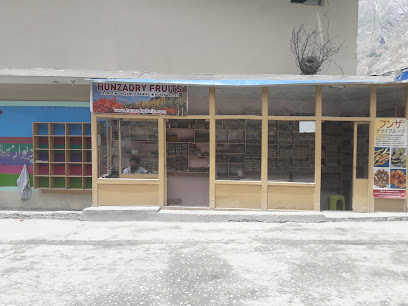
Kan Khut General Store
Explore Kan Khut General Store in Niyil, Gilgit-Baltistan, for unique local products and an authentic taste of regional culture.

علی برادرز پلائی وؤڈ اینڈ جپسم
Explore Ali Brothers Plywood and Gypsum in Skardu for quality home goods amidst breathtaking Gilgit-Baltistan landscapes.
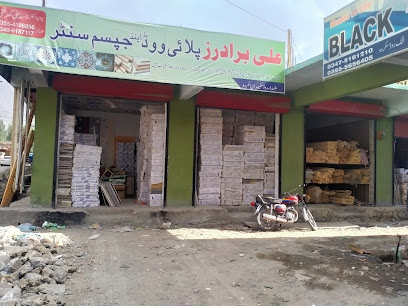
Style 360 Khomar
Experience the vibrant shopping culture at Style 360 Khomar in Gilgit, where local craftsmanship meets modern retail.
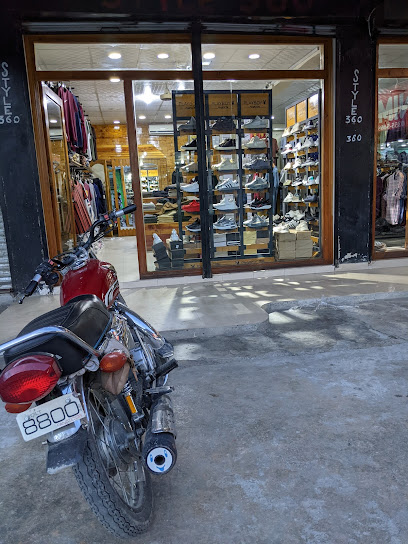
Ahmar Nawaz Shopping Mall
Experience the vibrant culture and local flavors at Ahmar Nawaz Shopping Mall in Chilās, your gateway to Gilgit-Baltistan's unique treasures.
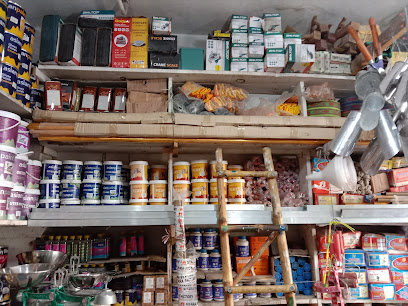
Sahar fancy shop kharkoo lahar
Discover the vibrant local fashion at Sahar Fancy Shop in Kharkoo, a unique destination for authentic clothing and accessories.
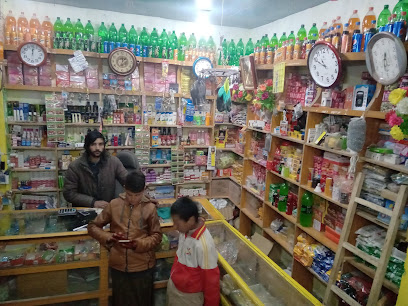
Qayyum Gift Centre
Explore unique gifts and local handicrafts at Qayyum Gift Centre in Gilgit-Baltistan, where every item tells a story of the region's rich culture.
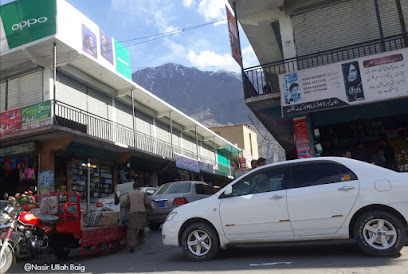
Essential bars & hidden hideouts
Glacier Breeze
Indulge in delightful baked goods and café favorites at Glacier Breeze, surrounded by the stunning landscapes of Passu, Gilgit-Baltistan.
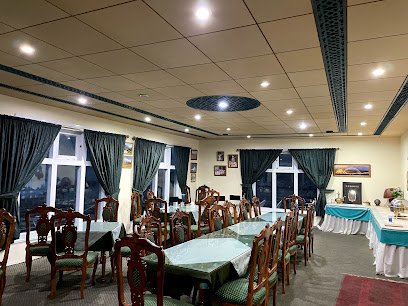
Nanga Parbat View Hotel
Experience the breathtaking views and authentic flavors of Gilgit-Baltistan at Nanga Parbat View Hotel, your culinary oasis in the mountains.
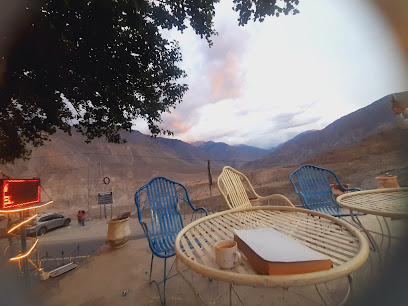
HAPPY HOUR
Experience the flavors of Gilgit-Baltistan at Happy Hour Restaurant, where local cuisine meets breathtaking views.
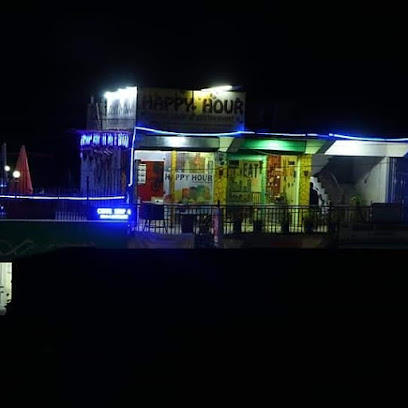
Pakistan Hotel and Fiaz Restaurant
Discover the rich flavors of traditional Pakistani cuisine at Pakistan Hotel and Fiaz Restaurant in the scenic Chilās, Gilgit-Baltistan.
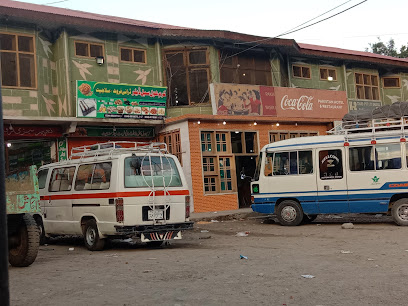
Babusar Gateway Restaurant
Experience the flavors of Gilgit-Baltistan at Babusar Gateway Restaurant, your culinary retreat in the breathtaking mountains.
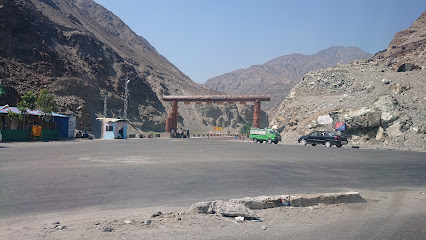
Deshan Snooker Club
Experience the thrill of snooker at Deshan Snooker Club in Abbottabad, where sports and socializing come together in a vibrant atmosphere.

Extreme Gaming Lounge
Discover the ultimate gaming experience at Extreme Gaming Lounge in Mansehra, where adventure and community come together in a vibrant atmosphere.

The Grill on Fire
Discover the finest grilled delicacies at The Grill on Fire, blending mouthwatering flavors with breathtaking views in Gilgit-Baltistan.
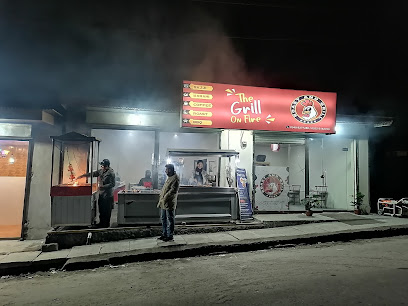
Swat Madina Hotel & Restaurant
Experience the rich culinary heritage of Gilgit-Baltistan at Swat Madina Hotel & Restaurant, where local flavors meet warm hospitality.
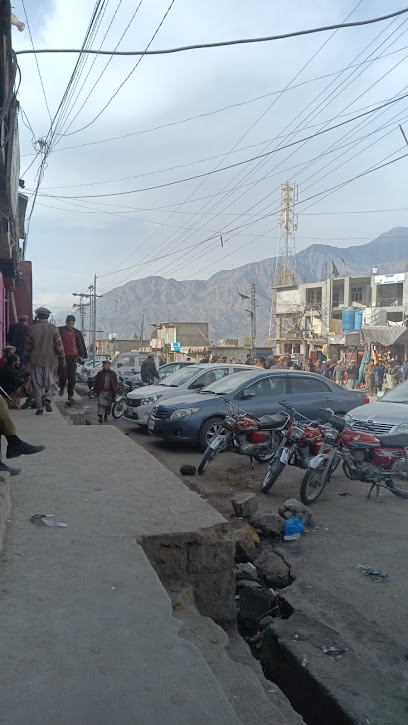
Juice box hunza
Discover the refreshing flavors of Juice Box Hunza, where stunning views meet delightful drinks in the heart of Karimabad.
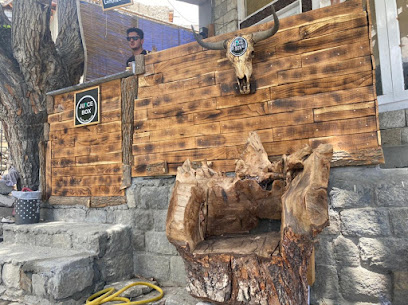
Jaazi Khan Hujra
Experience the lively atmosphere and local flavors at Jaazi Khan Hujra, a vibrant bar in the heart of Khyber Pakhtunkhwa, Pakistan.

GB Hotel and Nawaz Food Mela
Discover the rich flavors of Gilgit-Baltistan at GB Hotel and Nawaz Food Mela, a culinary haven nestled in enchanting landscapes.
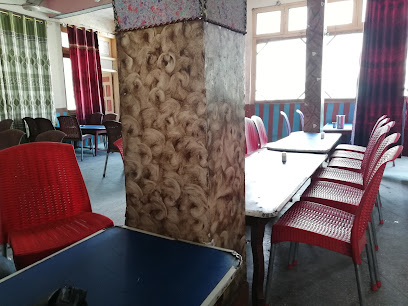
THE COOK & COOK
Discover the vibrant flavors of Khyber Pakhtunkhwa at The Cook & Cook in Mansehra, where local cuisine meets a lively bar atmosphere.
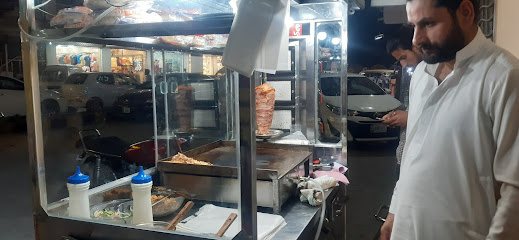
City Cold Bar
Discover the vibrant atmosphere of City Cold Bar in Abbottabad, where refreshing drinks and good times await you.

Bre Bax Sweet & Drinks
Discover the delightful flavors of Khyber Pakhtunkhwa at Bre Bax Sweet & Drinks, a charming bar in Shinkiari offering sweets and refreshing drinks.
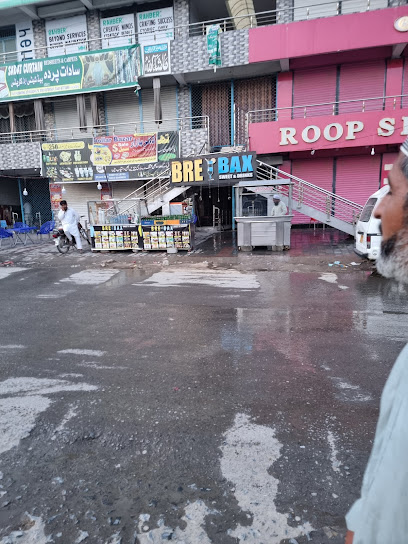
Local Phrases about Karakoram Highway
-
- Helloسلام
[salaam] - Goodbyeخدا حافظ
[khuda hafiz] - Yesہاں
[haan] - Noنہیں
[nahin] - Please/You're welcomeبراہ کرم
[barah e karam] - Thank youشکریہ
[shukriya] - Excuse me/Sorryمعاف کیجیے
[maaf kijiye] - How are you?آپ کیسے ہیں؟
[aap kaise hain?] - Fine. And you?ٹھیک ہوں. آپ سنا؟
[theek hoon. aap suna?] - Do you speak English?کیا آپ انگریزی بولتے ہیں؟
[kya aap angrezi boltay hain?] - I don't understandمجھے سمجھ نہیں آیا
[mujhe samajh nahi aya]
- Helloسلام
-
- I'd like to see the menu, pleaseبراہ کرم مینو دیکھنا ہے
[barah e karam menu dekhna hai] - I don't eat meatمیں گوشت نہیں کھاتا
[mein gosht nahi khata] - Cheers!صحت
[sehat] - I would like to pay, pleaseبراہ کرم ادا کرنا ہے
[barah e karam ada karna hai]
- I'd like to see the menu, pleaseبراہ کرم مینو دیکھنا ہے
-
- Help!مدد!
[madad!] - Go away!نکل جاؤ!
[nikal jao!] - Call the Police!پولیس کو بلاؤ!
[police ko bulao!] - Call a doctor!ڈاکٹر کو بلاؤ!
[doctor ko bulao!] - I'm lostمیں گم ہو گیا ہوں
[mein gum ho gaya hoon] - I'm illمیں بیمار ہوں
[mein bimar hoon]
- Help!مدد!
-
- I'd like to buy...میں خریدنا چاہتا ہوں...
[mein khareedna chahta hoon...] - I'm just lookingمیں صرف دیکھ رہا ہوں
[mein sirf dekh raha hoon] - How much is it?یہ کتنا ہے؟
[ye kitna hai?] - That's too expensiveیہ بہت مہنگا ہے
[ye bohat mehnga hai] - Can you lower the price?کیا آپ قیمت کم کرسکتے ہیں؟
[kya aap qeemat kam kar sakte hain?]
- I'd like to buy...میں خریدنا چاہتا ہوں...
-
- What time is it?کتنا بجا ہوا ہے؟
[kitna baja hua hai?] - It's one o'clockایک بجا ہے
[aik baja hai] - Half past (10)دس بج کر پندرھ منٹ ہے
[das baj kar pandrah mint hai] - Morningصبح
[subah] - Afternoonدوپہر
[dopehar] - Eveningشام
[shaam] - Yesterdayگزشتہ کل
[guzishta kal] - Todayآج
[aaj] - Tomorrowکل
[kal] - 1ایک
[aik] - 2دو
[do] - 3تین
[teen] - 4چار
[chaar] - 5پانچ
[paanch] - 6چھے
[chhe] - 7سات
[saat] - 8آٹھ
[aath] - 9نو
[no] - 10دس
[das]
- What time is it?کتنا بجا ہوا ہے؟
-
- Where's a/the...?کہاں ہے...؟
[kahan hai...?] - What's the address?پتہ کیا ہے؟
[pata kya hai?] - Can you show me (on the map)?کیا آپ مجھے دکھا سکتے ہیں؟
[kya aap mujhe dikhha sakte hain?] - When's the next (bus)?اگلی (بس) کب ہے؟
[agli (bus) kab hai?] - A ticket (to ....)ایک ٹکٹ (سے ....)
[aik ticket (se ....)]
- Where's a/the...?کہاں ہے...؟
History of Karakoram Highway
-
The Karakoram Highway, often referred to as the Eighth Wonder of the World, follows one of the ancient Silk Road routes. This historic trade path connected China with the Indian subcontinent, facilitating the movement of silk, spices, and other valuable goods. The highway traces the footsteps of traders and explorers who traversed these treacherous mountains for centuries, making it a living testament to the rich history of commerce and cultural exchange.
-
The construction of the Karakoram Highway, also known as the KKH, began in 1959 as a joint project between Pakistan and China. It was completed in 1979, after 20 years of arduous labor. The project employed over 24,000 workers from both countries, and many lost their lives due to the harsh conditions and accidents. The highway stretches over 1,300 kilometers from Hasan Abdal in Pakistan to Kashgar in China, symbolizing the enduring friendship between the two nations.
-
The Karakoram Highway holds immense geopolitical significance. It serves as a crucial link between Pakistan and China, enhancing trade and strategic military cooperation. The highway also provides China access to the Arabian Sea through Pakistani ports, thereby reducing its reliance on the longer sea routes through the South China Sea and the Strait of Malacca. This strategic corridor is part of China's Belt and Road Initiative, aiming to boost economic integration across Asia.
-
The regions surrounding the Karakoram Highway are home to a mosaic of cultures and ethnicities. The highway passes through the Hunza Valley, known for its breathtaking landscapes and the legendary longevity of its inhabitants. The valley's people, primarily of Burusho descent, speak the unique Burushaski language. Further along, the highway touches Gilgit, a melting pot of various ethnic groups, including Shina, Balti, and Wakhi, each with their distinct traditions, languages, and lifestyles.
-
The Karakoram Highway is a magnet for adventurers and tourists from around the world. It offers access to some of the world's highest peaks, including K2, the second-highest mountain on Earth. The highway also leads to the stunning Khunjerab Pass, the highest paved international border crossing in the world at an elevation of 4,693 meters. Travelers can explore ancient rock carvings, vibrant bazaars, and serene valleys, making the journey along the KKH a once-in-a-lifetime experience.
-
The Karakoram Highway is prone to natural hazards such as landslides, avalanches, and earthquakes due to its location in a geologically active region. These challenges require continuous maintenance and improvement efforts. In recent years, both Pakistan and China have invested in upgrading and expanding the highway to ensure its safety and reliability. The ongoing improvements aim to facilitate smoother travel and bolster trade between the two countries.
Karakoram Highway Essentials
-
The Karakoram Highway (KKH) can be accessed from both Pakistan and China. If you are starting from Pakistan, the nearest major airport is Islamabad International Airport. From Islamabad, you can take a bus, hire a private car, or join a guided tour to reach the starting point of the KKH in Hasan Abdal. The drive from Islamabad to Hasan Abdal takes approximately 1-2 hours. If you are entering from China, you will start your journey at the Khunjerab Pass, the highest paved international border crossing in the world. Make sure to check visa requirements and travel advisories for both countries before planning your trip.
-
Traveling along the Karakoram Highway can be done via private car, motorcycle, or by taking local buses and vans. Renting a 4x4 vehicle is highly recommended due to the rugged terrain and unpredictable weather conditions. Public transport options, such as buses and shared vans, are available but can be less reliable and comfortable. For an immersive experience, consider joining a guided tour that includes transportation and knowledgeable guides. Keep in mind that road conditions can vary, and landslides or road closures may occur, so always check the latest travel updates.
-
The official currency in Pakistan is the Pakistani Rupee (PKR). Major cities along the KKH, such as Gilgit and Skardu, have ATMs and accept credit cards in some hotels and restaurants. However, it is advisable to carry enough cash, especially in remote areas where card facilities may not be available. Exchange money at authorized currency exchange centers or banks in major cities before heading into more remote areas. Always keep small denominations for easier transactions in local markets and with street vendors.
-
The Karakoram Highway is generally safe for tourists, but it is essential to stay vigilant and follow local advice. Avoid traveling at night due to poor road conditions and limited visibility. Be cautious in areas close to the Pakistan-Afghanistan border and check for any travel advisories before your trip. Crime rates targeting tourists are relatively low, but it is always wise to keep your belongings secure and avoid displaying valuable items. Stay updated on weather conditions, as landslides and road closures can occur, especially during the monsoon season.
-
In case of emergency, dial 15 for police and 1122 for medical assistance and fire services. Hospitals and medical facilities are available in major towns such as Gilgit, Skardu, and Hunza. It is highly recommended to have travel insurance that covers medical emergencies and evacuation. For minor health issues, carry a basic first aid kit and any necessary prescription medications. Familiarize yourself with the locations of local hospitals and clinics along your route.
-
Fashion: Do dress modestly, especially in rural and religious areas. Avoid wearing revealing clothing. Religion: Do respect local customs and traditions. Remove your shoes before entering mosques and cover your head if required. Public Transport: Do be respectful and courteous to fellow passengers. Don't eat or drink on public transport. Greetings: Do greet people with a traditional 'As-Salaam-Alaikum' and a handshake. A slight bow of the head shows respect. Eating & Drinking: Do try local delicacies and accept food offerings graciously. Don't refuse hospitality, as it is considered impolite.
-
To experience the Karakoram Highway like a local, take the time to interact with the local communities and learn about their cultures and traditions. Visit local markets to buy fresh produce and handmade crafts. Try the regional dishes, such as chapli kebabs, yak meat, and apricot-based desserts. Don't miss the chance to explore the stunning landscapes by trekking in areas like Hunza Valley, Fairy Meadows, and Skardu. Engage with local guides who can provide deeper insights into the history and significance of the region.
Nearby Cities to Karakoram Highway
-
Things To Do in Skardu
-
Things To Do in Naran
-
Things To Do in Kaghan
-
Things To Do in Swat
-
Things To Do in Chitral
-
Things To Do in Abbottabad
-
Things To Do in Murree
-
Things To Do in Islamabad
-
Things To Do in Rawalpindi
-
Things To Do in Leh
-
Things To Do in Peshawar
-
Things To Do in Jammu
-
Things To Do in Sialkot
-
Things To Do in Gujranwala
-
Things To Do in Osh













